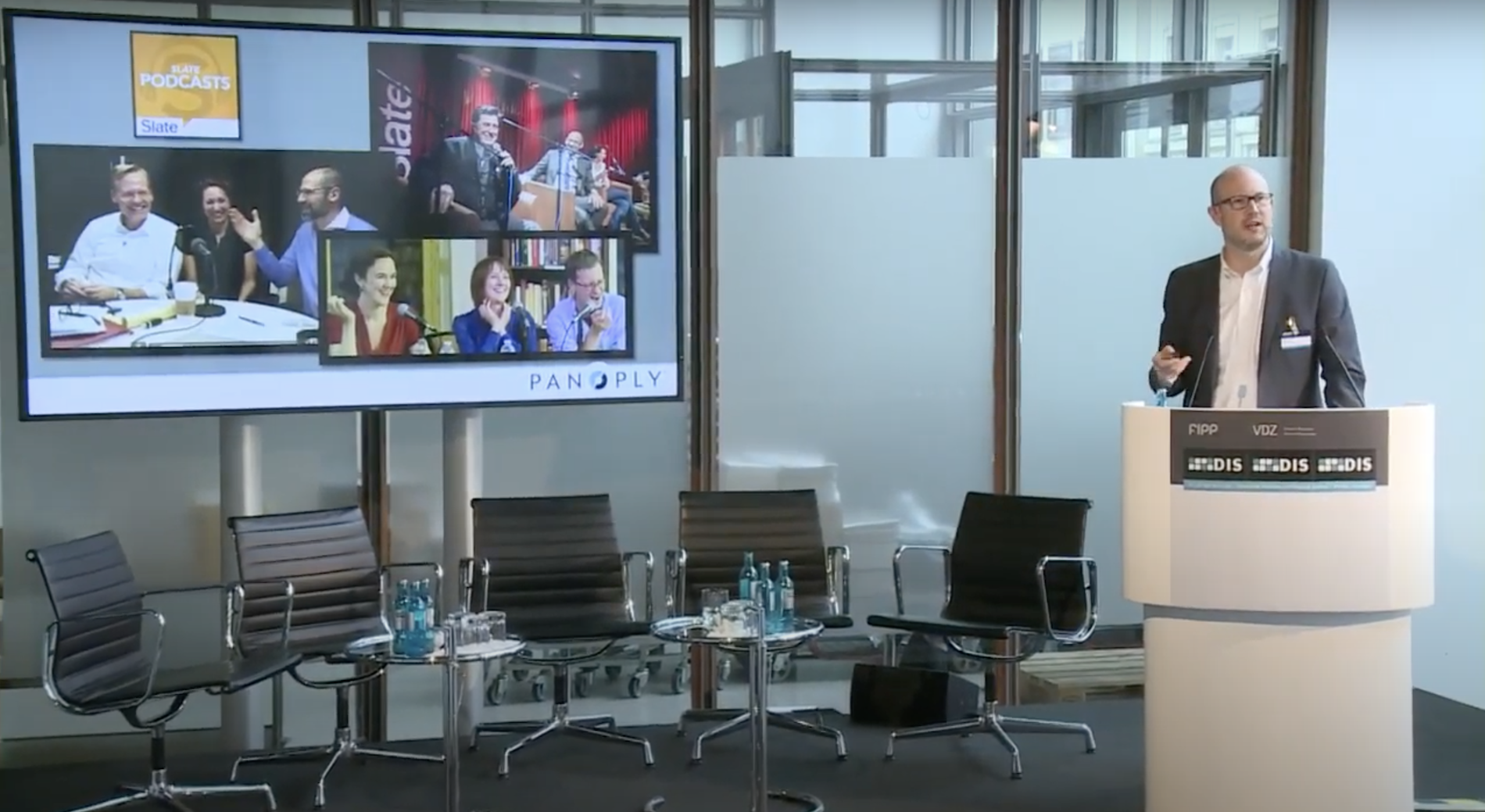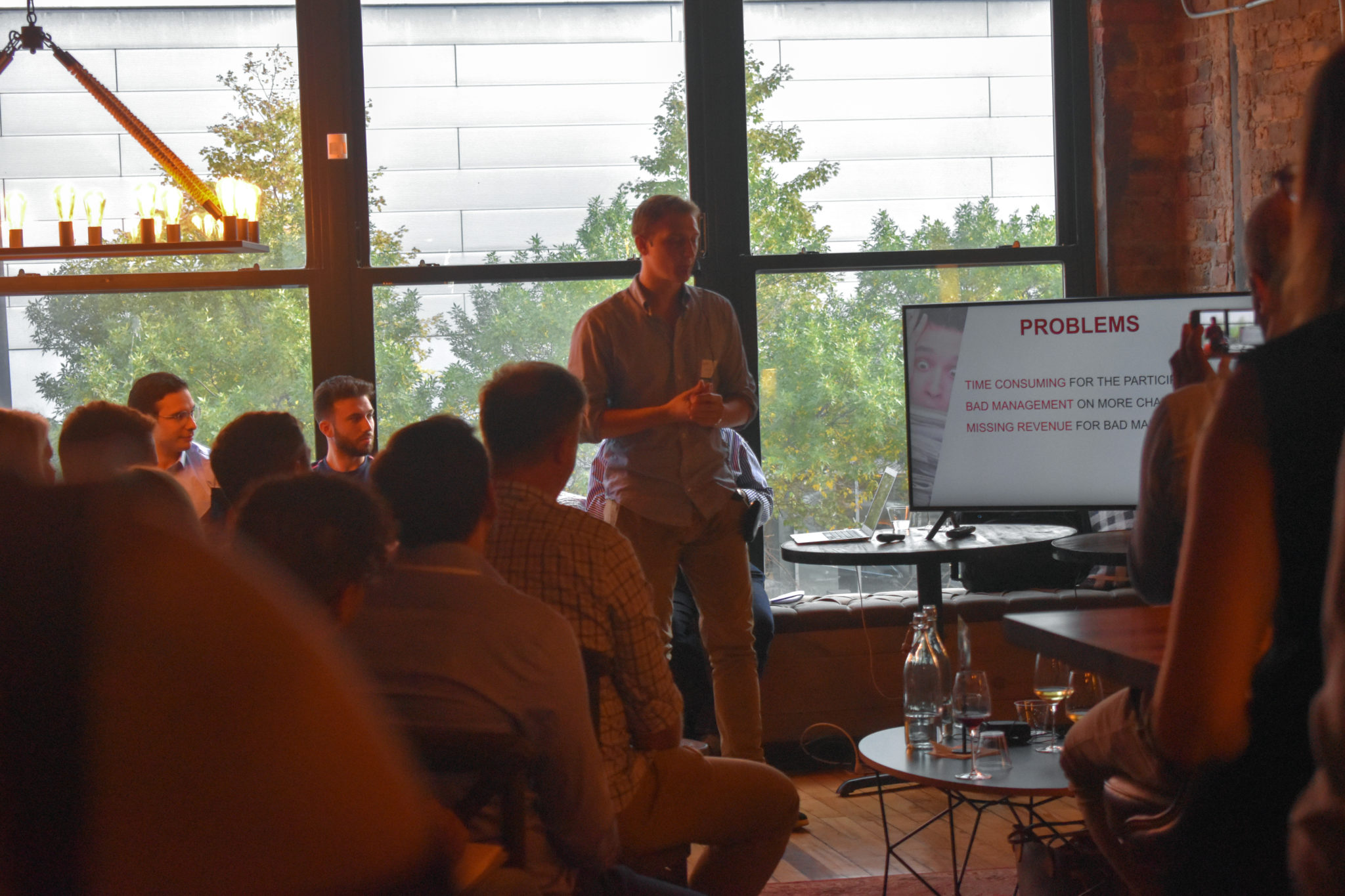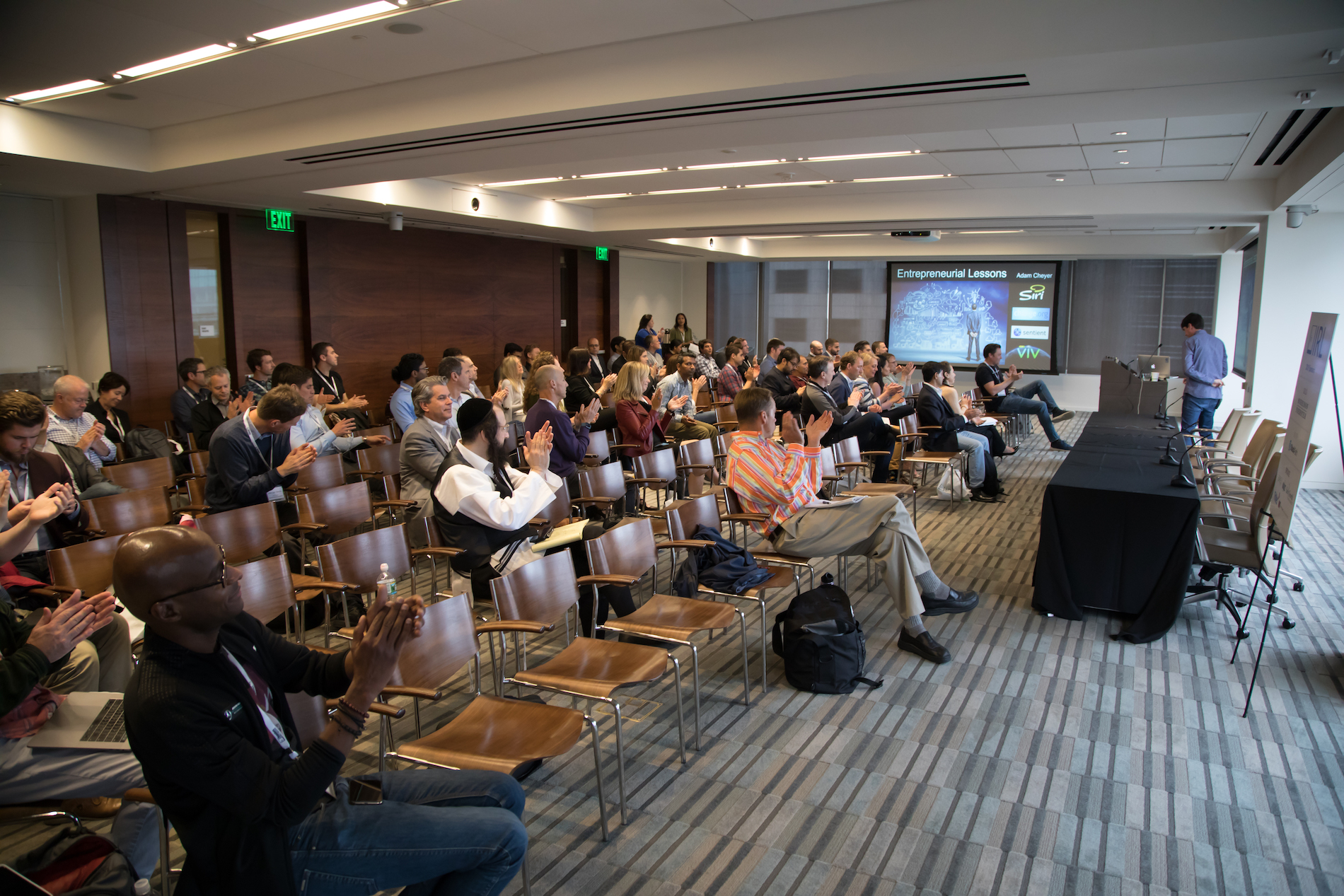
Andy Bowers is an audio journalist and podcast pioneer. He founded Slate Podcasts in 2005 and, in 2015, co-founded the podcast services company Megaphone, which sold to Spotify in 2020. He also founded the children’s audio service Pinna. Previously, he was a correspondent for NPR, and held posts including White House correspondent, London Bureau Chief, and Moscow Bureau Chief.
In 2005, Andy Bowers recorded Slate’s first podcasts in his bedroom closet. Initially Andy recorded himself sharing the news, politics, and current affairs in the United States. Yet, after an editorial meeting with a group of coworkers, Bowers had an idea that would change podcast history.
The editorial meetings at Slate were hilarious. Slate’s writers would meet regularly, for 30-60 minutes, to brainstorm new content ideas, discuss what’s on the plate for the next few weeks, argue over politics and policy, and praise coworkers. Bowers loved how honest, raw, and funny his colleagues were during these meetings.
Bowers wanted to share the spirit of these meetings with a broader audience. That’s when he created Slate’s first talk show, the Political Gabfest. He casted three journalists with three different microphones who shared their concerns about politics and current affairs, made jokes, and authentically connected with one another, just like friends do at cocktail hour. Slate’s Political Gabfest became a huge hit and is still running after sixteen years.
When Bowers started at Slate magazine in 2003, no podcast existed at the company. Fast forward to 2021, Slate now has over 28 podcasts. In fact, they are widely recognized as a leader in the podcasting space, receiving compliments by well-known celebrities including Stephen Colbert and Ira Glass.
Since 2005, Bowers has created or helped create dozens of podcasts. In fact, the NY Times Magazine editor refers to Bowers as “The Godfather of Podcasting”. Podcasts he has launched include Revisionist History with Malcolm Gladwell, the scripted dramas Passenger List, The Message and Life After, Empire on Blood, Happier with Gretchen Rubin, The Walk, the Slate Gabfests, The Gist, Trumpcast, Family Ghosts, By the Book, and many others.
He’s managed podcasting partnerships with companies and authors including The Wall Street Journal, Slate, Vanity Fair, Netflix, HBO, Amazon Prime, Starbucks, The New York Times, Vulture, Vox, Inc., New York Magazine, Rolling Stone, MTV, BuzzFeed, Politico, The Huffington Post, Real Simple, Sports Illustrated, Bon Appétit, Susan Cain, and Chris Guillebeau.
Regardless of what the topic is, Andy Bowers believes that great content is the primary reason that people will listen to a podcast. In an interview with Founders Network, Bowers stated “Content is the most important thing. Without good things to listen to, what’s the point of a hosting service?”
“Content is the most important thing. Without good things to listen to, what’s the point of a hosting service?” - @andybowers Share on XCreate something because there’s a need for it
Bowers strongly believes that the best things are created when there is a strong need for them to exist. In 2015, Bowers and his team at the Slate Group, co-founded Panoply, a podcast content and ad sales company, which later pivoted to become Megaphone, a hosting, ad-tech and content management service. Prior to Megaphone, podcasters had limited ways to measure listeners, track ad results, and understand their audiences’ response to each show.
When launching a new show, Bowers believes that the audience is your “co-producer”. Bowers says “Don’t worry about your show being perfect in the beginning. Just start and let the audience guide you toward what they want to hear.” With Megaphone, podcasters could now utilize metrics, track downloads, manage their content, and understand their impact.
Thanks to its deep roots in podcast content and the needs of publishers, Megaphone quickly became the world’s leading podcast hosting service for enterprise publishers.In 2020, Spotify acquired Megaphone.
Founded “Pinna” an on-demand audio service for kids 3-12
In 2017, Bowers founded the pioneering subscription audio service for kids 3-12, Pinna (https://pinna.fm/). He’s been creating audio stories for children since 2005.
“It’s better to create a bunch of shows for 50,000 listeners than one show for millions of listeners.” - @andybowers Share on XFocus on niche audiences
Bowers strongly believes that “It’s better to create a bunch of shows for 50,000 listeners than one show for millions of listeners.” By solving problems for a smaller audience, you can make the content relevant to them, and then move onto another audience.
Cofounded Pitaya Entertainment, a LatinX on-demand audio network
Bowers doesn’t let language barriers get in the way of his dreams to give more people access to great content. Recently, he joined forces with four industry powerhouses to launch a new on-demand audio network called “Pitaya Entertainment”, serving the LatinX community. His team aims to amplify and grow LatinX voices around the United States, a population that is underserved.
Bowers doesn’t speak Spanish, but he still plays a huge role in the company. He’s an advisor on podcasting business strategy, handles all of the parts of podcasting that are not language specific, and lets his Spanish-speaking teammates manage the content.
Save the date: March 17, 2021
Andy Bowers is speaking at Founders Network
Creating companies and launching podcasts are big accomplishments, but to Bowers it’s second nature. When launching something new, he believes that you should just start instead of worrying about making it perfect.
To learn more about personal frameworks and techniques, see if you qualify for membership and check out the webinar from March 17.
Bowers will give a talk for Founders Network on March 17, 2021. In this talk, he’ll dive into personal frameworks and techniques he’s applied throughout his career when starting something new. These include:
- How to think of your audience as your co-producer
- Don’t reinvent the wheel. Find things that worked in the past rather than starting from scratch entirely.
- Why segmenting your audience is important
- Don’t go for perfect – just start.
- How to avoid bias
- And more
To learn more about personal frameworks and techniques, see if you qualify for membership and check out the webinar from March 17.






